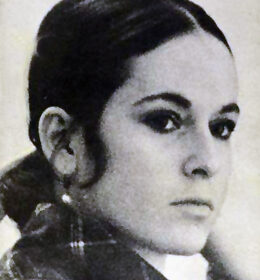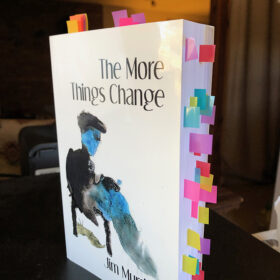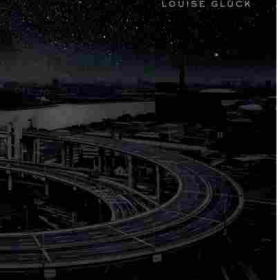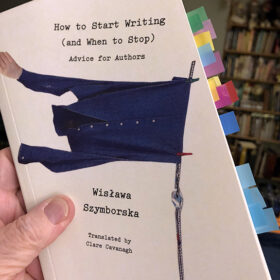-

“Thirteen Maqams” from Fady Joudah (a Palestinian lament)
I’m linking to this extraordinary rage-meditation before it gets taken down for whatever “national security” reason: A Palestinian Meditation in a Time of Annihilation: Thirteen Maqams for an Afterlife, by the magnificent Palestinian-American poet/translator and physician Fady Joudah. Thanks to LitHub for making it available, and thanks to Louise Glück, wherever she’s traveling these days, for choosing Joudah’s first book for the Yale Series of Younger Poets competition in 2007. For anyone interested in the title of Joudah’s lament, here’s a good place to start exploring maqam.Read More
-

Adios, Louise Glück
THE MOUNTAIN by Louise Glück My students look at me expectantly. I explain to them that the life of art is a life of endless labor. Their expressions hardly change; they need to know a little more about endless labor So I tell them the story of Sisyphus, how he was doomed to push a rock up a mountain, knowing nothing would come of this effort but that he would repeat it indefinitely.Read More
-

My Pandemic Year in Books
So Many Books, So Little Time I could have sworn that I’d read far fewer books this year than in past years, but it seems not to be so. It must be one of the few benign side effects of the pandemic. Of course, the pandemic has been hard on my writing, poems—at least poems of my kind—seeming fairly pointless amid the waves of infection and death and the tide of fascism rising out of the GOP (the Goosestepping Old Party).Read More
-

Louise Glück Wins the Nobel Prize
I’ve always loved Louise Glück’s poetry, which has always presented an almost Rilkean inwardness. The Nobel literature committee’s choice evidently came as a surprise. After all, the hapless Alex Shephard at The New Republic just two days ago included Glück on his “These Americans Aren’t Going to Win” list. He pegged her odds at 25-1 and added this remark: “Least irritating poet whose work you regularly encounter on Instagram.” Just how irritating she is Mr. Shephard may have occasion to tell us in a future issue of TNR.Read More
-

Louise Glück on Poetry, Life, and the Life of the Poet
I remember reading Blake’s “Little Black Boy,” and I remember reading the song from Cymbeline, “Fear no more the heat o’ the sun.” And I must have been five years old, four years old—little … but I heard those poems. I often didn’t know …—with Blake’s poem, I knew obviously nothing of the historical background of the poem, but the cry from the heart to my ear, that I could hear. And other wonderful observations from one of our finest living poets….Read More
-

Louise Glück Wanders Off the Mountain
Many years ago, when Louise Glück’s The House on Marshland was fairly new, I had the privilege of teaching it (or musing about it in front of others), along with three or four other full-length books of poems. Instead of cherry-picking poems to illustrate this or that form, technique, style, or voice, we engaged whole books on the level of theme, world-view, the force-fields created by various approaches to metaphor and tone, and yes, worked to understand what the author intended to say.Read More
-

Tom Montag In the Zone
For several weeks now Tom Montag has been writing “in the zone” about poetry on is blog The Middlewesterner—the process, the purpose, the inside and the out of it. Today’s Montag post is especially resonant.Read More
-

Earnings Report
In the comment stream related to a piquant entry on his blog, William Michaelian made this observation: “By and large, it seems we earn a readership that mirrors our own strengths and shortcomings.” Turn that one over a few times! There’s wisdom in it. I added a reaction to the comment stream there, and thought it might be worth expanding a bit here. What I thought is that the reverse may be true as well—that the writers we value mirror our own strengths and shortcomings.Read More
-

The Poetry of Outsidership
I just discovered a site called Goodreads, and yesterday I posted this brief review there. I’ve expanded it somewhat and added a few links for this incarnation. Someone once pointed out that judges of the Yale Younger Poets competition are dependent on what comes across their desks. There are fat years and lean years. W. S. Merwin’s first year as judge was a lean one, evidently, since he could find no manuscript worth publishing. But last year was a fat one, if Fady Joudah‘s The Earth in the Attic (selected by Louise Glück) is any indication.Read More


 Joseph Hutchison, Colorado Poet Laureate 2014-2019, has published 20 collections of poems and edited or co-edited three poetry anthologies. He currently directs two master’s-level programs for University College at the University of Denver: Professional Creative Writing and Arts & Culture Management. Joe lives with his wife, Melody Madonna, in the mountains southwest of Denver, Colorado, the city where he was born.
Joseph Hutchison, Colorado Poet Laureate 2014-2019, has published 20 collections of poems and edited or co-edited three poetry anthologies. He currently directs two master’s-level programs for University College at the University of Denver: Professional Creative Writing and Arts & Culture Management. Joe lives with his wife, Melody Madonna, in the mountains southwest of Denver, Colorado, the city where he was born. 









